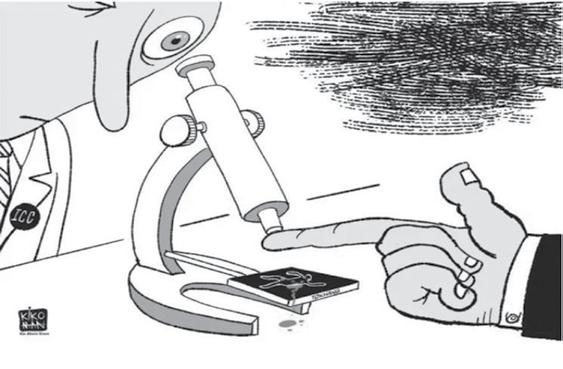
3 minute read
ICC resumes probe on PH’s...
Also, the Philippine National Police said 61 people were killed in anti-narcotics operations since 2022 when President
Ferdinand Marcos Jr. took office. This was despite the new anti-illegal drugs campaign of the Marcos administration that focuses on demand reduction and drug user rehabilitation instead of the killing of drug users, according to Interior Secretary Benhur Abalos. n
Advertisement
MANILA — The national government’s outstanding debt, as a share of the economy, remained within alarming levels in 2022, keeping the threat to the country’s creditworthiness. The Philippines’ debt-toGDP ratio, a gauge of the government’s ability to settle its liabilities, settled at 60.9% in 2022, the Department of Finance reported Thursday, February 2. This was notably a better showing than the 63.7% ratio recorded in the third quarter of 2022. But it was slightly higher than the 60.5% ratio recorded at the end of 2021.
Nevertheless, the DOF said the 2022 figure fell below the Marcos administration’s ceiling of 61.8% debt-to GDP ratio for last year. Treasury data showed the state’s debt pile sagged 1.7% month-on-month to P13.42 trillion in December 2022.
While this is a welcome development, Nicholas Antonio Mapa, senior economist at ING Bank in Manila, warned that the Philippines’ hardwon investment grade credit rating would remain at risk of a downgrade if the debtto-GDP ratio stays above the 60% threshold that is deemed manageable for developing economies.
A downward revision of the credit rating would have serious repercussions on the Philippines. For one, a lower rating would make borrowing money offshore more expensive for both the government and Philippine companies. A downgrade could also affect the country’s appeal to foreign investors.
“The longer we stay above 60 percent we will always be susceptible to a downgrade. It’s clear that the strategy for fiscal consolidation hinges on growth to hit or surpass target,” he said in a Viber message.
The country’s debt-to-GDP ratio hovered at 39.6% in
Not academically proficient
THE problems besetting the various aspects of Philippine education were enumerated on Monday, January 30. Attending the release Monday of the Basic Education Report or BER 2023 prepared by the Department of Education, President Marcos committed to boost education infrastructure as well as upskilling programs for teachers. He made the commitment as Vice President and DepEd Secretary Sara Duterte said “Filipino learners are not academically proficient” and many of them “may fail to meet the standards of the demanding and competitive world.”
The Vice President, who delivered the education report, identified inadequate school infrastructure and resources “to support the ideal teaching process” as the most pressing problem. Duterte also noted the “weak teaching methods… in addressing 21st century skills.”
Basic education learners, meanwhile, cannot understand mathematics problems or comprehend text of moderate length. The Vice President said there are also learners who suffer from emotional abuse, exhaustion and psychological fatigue.
Duterte also cited “cracks” in DepEd procurement processes including the lack of transparency and accountability – problems that hounded the procurement of laptops for teachers’ use during the COVID pandemic lockdowns. The curriculum under the K-12 program, meanwhile, will be tweaked as it has failed to deliver on its promise of producing students who are employable upon finishing basic education, she said. BER 2023 showed that the majority of senior high school graduates still find it necessary to pursue higher education to obtain gainful employment.
The lack of classrooms has been a problem for many decades. Despite a continuing program to build more schools and classrooms, the infrastructure expansion cannot keep up with the booming student population.
Even before the pandemic, international studies have also shown that Filipino 10-yearold students rate poorly in mathematics and reading comprehension. The basic education curriculum has been revised in the past years to put more emphasis on the teaching of the sciences, mathematics and English proficiency. Yet the BER 2023 shows that more must be done. The exodus of teachers slowed down as pay and benefits were improved, and there has been a continuing government program to hire more educators. But the country continues to suffer from a lack of qualified teachers. The hybrid learning mode employed during the pandemic lockdowns highlighted the inadequacies of teaching skills especially in the use of digital technology for education.
With the problems identified, they must now be confronted with greater commitment, effort and resources. Education is supposed to narrow social inequities and open opportunities for advancement in life across income classes. This can still be achieved. (Philstar.com)



